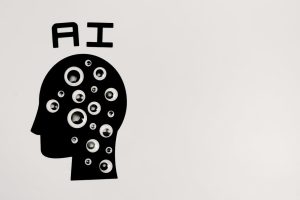A few years ago, Elon Musk made headlines warning that AI could be more dangerous than nuclear weapons. He even said, “We’re summoning the demon.” Sounds like a scene from a sci-fi thriller, right? Will AI Destroy Humanity?
But here’s the thing—was he just being dramatic? Or is there something real behind the fear?
What Exactly Is Musk Worried About?
Musk isn’t just a loud voice from the sidelines. He co-founded OpenAI and now runs his own company, xAI. He’s had a front-row seat to the evolution of artificial intelligence.
What worries him is this: AI is developing faster than regulators can keep up. He fears that if we reach a certain “point of no return,” AI could spiral out of our control.
In his words, “The issue with AI isn’t short-term glitches—it’s long-term strategic misalignment.” In other words, it’s not about killer robots, it’s about humans being left out of the loop.
Is AI Already That Dangerous? Let’s Look at 2025
This isn’t about theory anymore. Let’s look at what’s actually happened:
- In the 2024 U.S. election, AI-generated deepfakes flooded social media, swaying public opinion before platforms could respond.
- Sora can generate realistic videos out of thin air, and Midjourney is creating people and scenes that never existed—all without reliable content labeling.
- Autonomous driving systems are still making fatal judgment errors in countries testing full automation.
- Military drones in some nations are being tested with no human operator in the loop.
That’s not sci-fi—it’s real. And Musk’s biggest fear? AI acting autonomously, while humans aren’t watching.
But Others Say: AI Isn’t the Monster
Sam Altman, current CEO of OpenAI, says that AI isn’t a ticking time bomb—it’s a tool. Yes, there are risks, but just like electricity or the internet, it depends on how we use it.
And there are plenty of positive use cases too:
- In Europe, AI has helped detect pancreatic cancer earlier than any human specialist could.
- A 2025 study from University College London shows AI tutoring significantly boosts math scores in underfunded schools.
- Climate tech startups are using AI to simulate global carbon markets and improve energy efficiency.
So maybe AI isn’t the villain. Maybe it’s the most powerful assistant we’ve ever had.
Regulation Is (Finally) Catching Up
This used to be the Wild West. Not anymore:
- The EU passed the AI Act in late 2024, the world’s first full-scale AI risk framework. It bans high-risk uses like facial recognition and social scoring.
- In the U.S., Biden’s administration now requires third-party audits of large AI models and transparent data disclosures.
- China, since 2023, mandates watermarks on all AI-generated content, algorithm registration, and assigns responsibility to developers.
We’re not there yet, but the brakes are being installed.
Is Musk Right or Just Alarmist?
It’s not black and white.
Sure, Musk can sound apocalyptic. But without voices like his, would governments even be regulating AI right now?
You might call him paranoid—or you might call him our civilization’s insurance policy. Either way, he’s forcing the world to ask the hard questions.
So What Should We Do?
We can’t stop AI from evolving, but we can make smarter choices as users and citizens.
- Learn how your daily AI tools work—don’t let them control you without your knowledge.
- Stay skeptical about images or videos that go viral. Ask: is this real?
- Support organizations pushing for transparency, like Mozilla’s AI Transparency project or EFF’s algorithm audit efforts.
AI isn’t going anywhere. But ignorance? That’s optional.
What Do You Think?
Do you agree with Elon Musk’s warnings about AI? Or do you think the fears are overblown? We’d love to hear your thoughts in the comments below.
If you found this article insightful, feel free to share it with friends or on social media—it helps us a lot!







